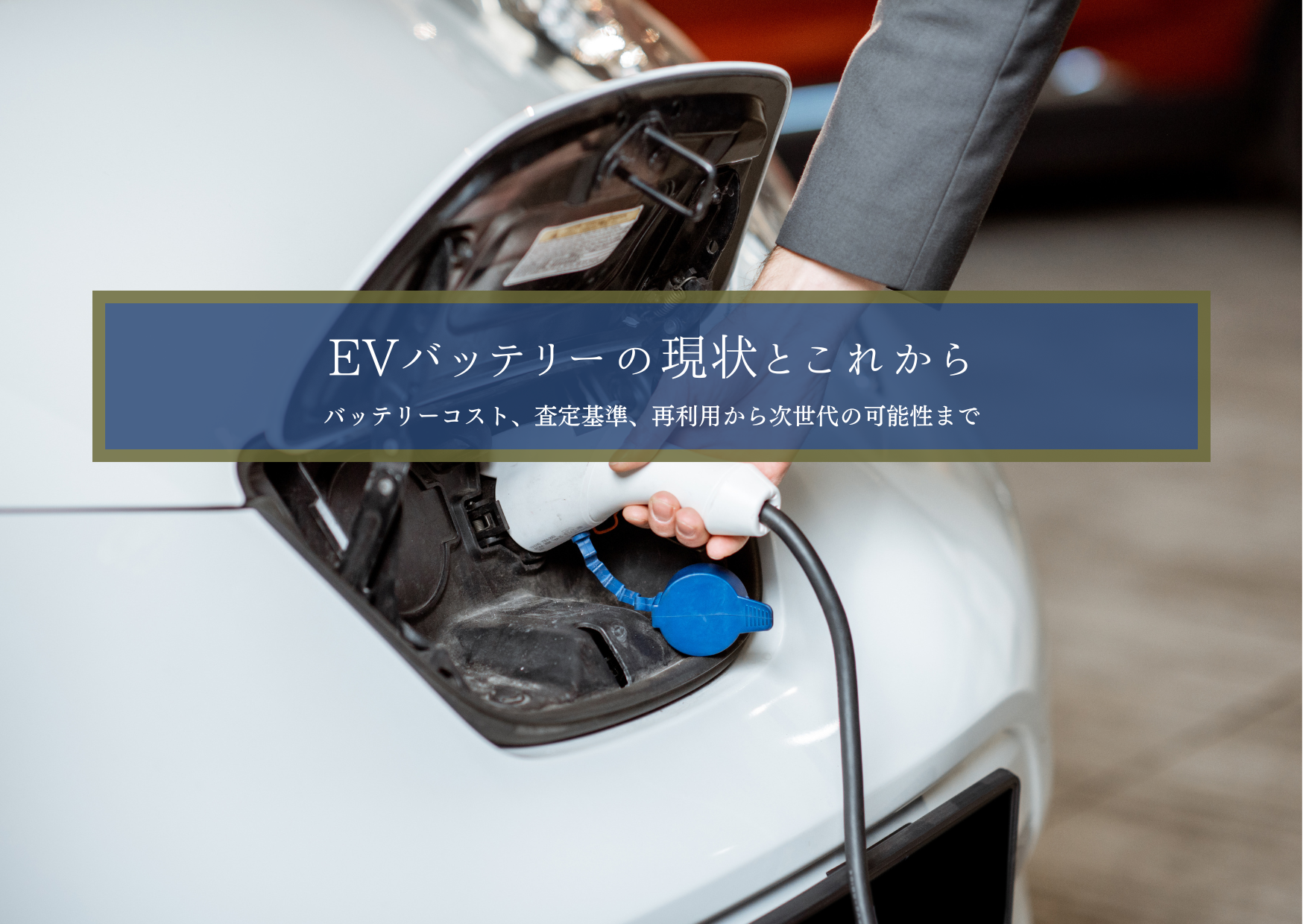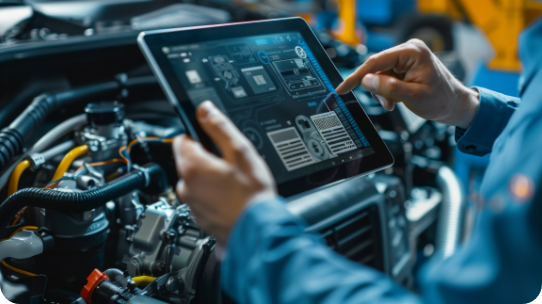- Top
- Turnpoint Media
- Mobility Industry Trends
- The Current Status and Future of EV Batteries|From Battery Costs, Assessment Standards, and Reuse to Next Generation Possibilities
モビリティ業界動向
The Current Status and Future of EV Batteries|From Battery Costs, Assessment Standards, and Reuse to Next Generation Possibilities

Need help with your job search?
Consultation
- I don't know if there is a job that fits my criteria
- I don't have time to look for jobs.
- I want to start thinking about career planning.
Turnpoint Consulting is a recruitment agency specializing in the automotive and mobility industry. Our industry experts will support you in your career.
Table of Contents
Current EV Battery Issues
There are a variety of factors that have contributed to the promotion or stagnation of EV adoption, and this section looks at the social factors surrounding EV batteries.
Battery cost
Rare metals (lithium, cobalt, and manganese) are used in the manufacture of EV batteries.
The limited amount of these metals mined in the first place, coupled with the lack of recycling of batteries, has led to an inevitable battle for raw materials and, in turn, a steep rise in battery prices.
Manufacturers are making various attempts to remedy these issues. LFP (lithium-ion iron phosphate) batteries, which use a smaller proportion of rare metals than lithium-ion batteries, and the “blade battery” developed by BYD have lowered battery production costs. Despite such trends, the methods of using and reusing rare metals, which have been valued as raw materials for conventional batteries, need to be reviewed once again.

Ambiguous battery assessment criteria
The only way to accurately assess the degree of deterioration of EV batteries with current technology is to remove the batteries from the vehicle and directly check the deterioration of the components, a very large and unfeasible task. Therefore, used batteries are assessed on a very rough basis, based on mileage and years of use.
The inability to accurately evaluate EV batteries will lead to a collapse in the price of used EVs, which will further hinder the spread of EVs.

Why do battery valuation standards lead to the collapse of used EV prices?
Battery prices account for about 20-30% of the cost of manufacturing EVs and are a major factor in setting vehicle prices.
Therefore, if the price of used batteries is set lower than necessary, the price of used vehicles will fall accordingly.
Most EV batteries are estimated to have 70% of their full charge capacity when new after 8 years of use or after 160,000 km of driving, but this is only a However, this is only a guide. In some cases, the batteries may deteriorate more quickly than expected, and the concern that expensive battery replacement costs may be incurred may cause the demand for used EVs to decline, and prices to be set even lower than the original value of the vehicle.
Battery Reuse
Rare metals are the raw material for lithium-ion batteries, and their reuse is an urgent issue due to the negative impact on the environment during the mining and disposal phases, and because demand for rare metals is expected to grow in the future. Rare metals are used in batteries for smartphones and personal computers, and demand for rare metals is expected to continue to grow further, and is sometimes said to ” quadruple by 2040.
However, there has not been much progress in reusing them, and they are often made from new materials in conjunction with new vehicles.
Why aren’t rare metals being reused?
Currently, there are two approaches to disposing of used batteries: recycling and reuse.
Recycling recovers valuable materials such as lithium and cobalt from batteries, but at present, the cost of transporting used batteries and the labor involved in pretreatment make it more expensive, so new manufacturing is chosen because the new price is lower.
Future Prospects for EV Batteries
Battery Reuse Business
To improve this situation, automakers and others are building traceability systems and strengthening inspection systems.
Traceability refers to a system that tracks and manages the entire battery process from the manufacturing stage, through assembly, sales, and use, to final disposal and recycling. Establishing a consistent management system from production to disposal will not only promote the reuse of EV batteries, but also enable their diversion to other industries that use clean energy. Quality control and efficient recycling of batteries are expected to further support the development of the automotive industry in the future.
Secondary use in the energy industry
In addition to their use in automobiles, used batteries can be reused as stationary storage batteries as a means of secondary use. They can be converted into batteries for solar power generation, storage batteries for power outages, and backup batteries, and can be deployed to trigger the promotion of clean energy through the storage of renewable energy and natural energy.

Utilization of emergency power source with V2H technology
V2H is an acronym for “VehicletoHome,” and refers to devices that return power generated by EVs to household use. Conventionally, power generated at home has been used to recharge EVs, which is a one-way supply of electricity, but this technology will enable the exchange of power between EVs and household storage batteries.
The ability to use automobiles as mobile storage batteries means that EVs can be used as a temporary power source in times of disaster through V2H. Moreover, compared to stationary household storage batteries, EVs can be moved around to supply power, making them a “mobile storage battery,” so to speak, a technology that is in high demand in Japan, where disasters are frequent.

summary
The future of EVs is closely related to the social issues surrounding them. Through this article, we have explored ways to approach the further spread of EVs, with EV batteries as a starting point.
Understanding the trends in the automotive industry can be very helpful when considering a career change, especially when researching companies and preparing for interviews, We also provide up-to-date and reliable information on the talent flow in the industry for corporate recruiters.
Need help with your job search?
Consultation
- I don't know if there is a job that fits my criteria
- I don't have time to look for jobs.
- I want to start thinking about career planning.
Turnpoint Consulting is a recruitment agency specializing in the automotive and mobility industry. Our industry experts will support you in your career.
Supervisor of this article
Turnpoint Consulting Co.
Turnpoint Media Management Office
Turnpoint Consulting is a specialist recruitment agency for the automotive and mobility industry. Turnpoint Media will provide you with useful information on industry trends and career opportunities.
Related Articles
-
2025.06.21
Job Change x Trend News] Can’t Take My Eyes Off of You! Summary of the latest EV situation
-
2025.06.21
Gigacast is the key to EV manufacturing! Summary of companies introducing Gigacast
-
2025.06.20
Job Change x Trend News] By Manufacturer! Summary of the latest situation of self-driving cabs
Search by Industry
Consultation
Our expert team is dedicated to empowering your career change, crafting tailored career plans, and securing the best job opportunities in the automotive and mobility sectors.
- Top
- Turnpoint Media
- Mobility Industry Trends
- The Current Status and Future of EV Batteries|From Battery Costs, Assessment Standards, and Reuse to Next Generation Possibilities















